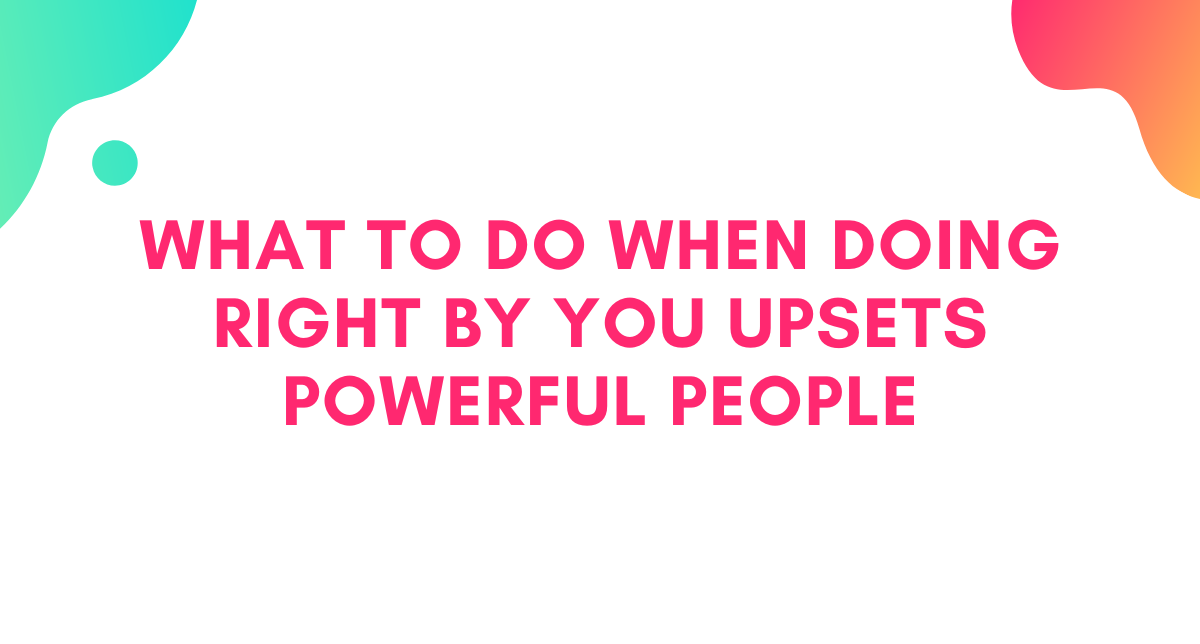Too Blunt or Just Right? How to Negotiate Without Shrinking Yourself
A charismatic, well-known industry figure is recruiting a client, let's call her Mina, to lead a new initiative.
Mina, a marketing executive, has consulted with organizations big and small, so the offered role is well within her wheelhouse, or her "zone of genius."
She reached out for coaching because, in her words, she didn't want to make the mistake of being "too blunt, too forward, too much" in her negotiation-- a critique she's heard more often than she'd care to count over her decades-long career.
[Enter here a huge caveat: According to this research cited by Fortune magazine, 76% of high-performing women leaders receive subjective and negative feedback compared to 2% of men--meaning it's more emblematic of a sexist society than an accurate reflection of women's competence or communication style.]
Mina worried she might screw this up being her usual self.
It turned out that the charismatic founder hit it off beautifully with my client, but when Mina looked under the hood and spoke one-on-one with other folks in the org, she found some red flags.
She felt conflicted and unsure how to proceed in the negotiation without sounding too negative. So here are the four steps we took in coaching:
1. Respect your strength (misinterpreted by society as "too much")
The iffiniess of what she observed led to Mina getting crystal clear on her criteria: a minimum pay rate under which she'd be an unequivocal no. She substantiated her pay request based on public data she found online.
Here's the kicker: Her "bluntness" is her negotiating leverage.
Being direct, clear, and straightforward about a potential dealbreaker will save both sides time and energy.
2. Reiterate your potential.
Assuming the potential employer can meet Mina's pay requirement, she planned to re-engage their leadership.
I invited her to test the possibility that these so-called "red flags" are in fact opportunities for her to offer tangible solutions.
In other words, these gaps can be the precise reasons why they need to hire someone like her -- an executive with a high-level understanding of the bigger picture but with their feet firmly on the ground.
3. Reframe concerns as curiosity.
While biases exist, it's also true that there is a more astute way to pose questions without passing blatant judgment.
How a question is received depends on how it is prefaced or framed.
For example, Mina can say:
I'm going to ask a few direct questions, and the reason why I'm asking them is to better understand the scope of the role and how I can hit the ground running.
This achieves two things:
One, introduce the idea of direct questions, thereby inoculating them against resistance.
Two, signal readiness and her future potential as someone who can add value right away.
4. Rephrase questions.
Then she can ask:
"Do you have documentation on goals and strategy?"
(Whether or not they have documentation) "Would you walk me through the current strategy as you understand it?"
"How do you envision my role, and how would it drive the overall goal?"
Compare that to saying, "Do you even have a strategy?" which lands like a verbal eye roll—and you'll see the difference.
The Big Takeaway
If you're a woman leader navigating career growth and want to negotiate without dimming your light, I can help.
Because here’s the big takeaway:
You don’t have to choose between being strategic and being yourself.
One of the toxic lies sexism teaches us is that it’s unsafe, unwise, or unhelpful to be exactly who we are—women who trust ourselves.
In coaching, I help you unwind that lie and layer in pragmatic communication strategies—at the right time and in the right place—so you can speak your truth, ask smart questions, and make clear, confident decisions.
In other words, so you can advocate for your career growth and show up as a powerful leader.
When you're ready to step into your next promotion or strengthen your self-advocacy muscle, you're invited to book a free, hour-long consultation. We'll co-create your custom blueprint to confidence.
Click here for the details: https://www.jamieleecoach.com/apply
Client testimonials:
Before coaching with Jamie, I was very quiet about what I brought to the table.
Coming to terms with that, learning to speak up for myself, has been a life-changing experience for me.
I got promoted to manager position at a biotech company.
Roseanne, Biotech Manager
Working with Jamie Lee provided me with a structured and sustainable approach—not just advice or referrals to self-help material. This experience helped me redefine success in a way that’s both authentic and strategic—and yes, I got promoted too, with the usual perks of a title change and a pay bump that exceeded my expectations.
Kasvi, Pharma Director
Through coaching with Jamie, I’ve made massive strides in reducing stress around conversations at work.
I’m no longer ruminating, or playing conversations over and over again in my head in an anxious loop, feeling like “Everything is so important,” or “They’re trying to make me look stupid.”
This was a pattern I struggled with across my whole career, and the impact of this change is HUGE for me.
I’m now more able to trust and accept my own choices, and be more focused on doing my job well while actually enjoying it.
Mel, Sales Lead at Tech Startup



![[CLIENT INTERVIEW] DeAndra's Story: How to Advocate for Yourself and Get the Dream Job](https://images.squarespace-cdn.com/content/v1/5ab420f6af2096d66f37cbec/1653506182845-ZVYR3VXMV619B2GL9UBE/Copy+of+Blog+Image+Title-11.png)

